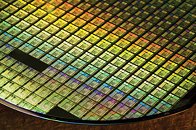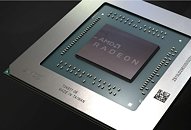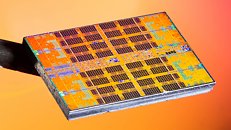Tuesday, September 17th 2019

TSMC Trembles Under 7 nm Product Orders, Increases Delivery Lead Times Threefold - Could Hit AMD Product Availability
TSMC is on the vanguard of chipset fabrication technology at this exact point in time - its 7 nm technology is the leading-edge of all large volume processes, and is being tapped by a number of companies for 7 nm silicon. One of its most relevant clients for our purposes, of course, is AMD - the company now enjoys a fabrication process lead over arch-rival Intel much due to its strategy of fabrication spin-off and becoming a fabless designer of chips. AMD's current product stack has made waves in the market by taking advantage of 7 nm's benefits, but it seems this may actually become a slight problem in the not so distant future.
TSMC has announced a threefold increase in its delivery lead times for 7 nm orders, from two months to nearly six months, which means that orders will now have to wait three times longer to be fulfilled than they once did. This means that current channel supplies and orders made after the decision from TSMC will take longer to materialize in actual silicon, which may lead to availability slumps should demand increase or maintain. AMD has its entire modern product stack built under the 7 nm process, so this could potentially affect both CPUs and GPUs from the company - and let's not forget AMD's Zen 3 and next-gen RDNA GPUs which are all being designed for the 7 nm+ process node. TSMC is expected to set aside further budget to expand capacity of its most advanced nodes, whilst accelerating investment on their N7+, N6, N5, and N3 nodes.
Source:
DigiTimes
TSMC has announced a threefold increase in its delivery lead times for 7 nm orders, from two months to nearly six months, which means that orders will now have to wait three times longer to be fulfilled than they once did. This means that current channel supplies and orders made after the decision from TSMC will take longer to materialize in actual silicon, which may lead to availability slumps should demand increase or maintain. AMD has its entire modern product stack built under the 7 nm process, so this could potentially affect both CPUs and GPUs from the company - and let's not forget AMD's Zen 3 and next-gen RDNA GPUs which are all being designed for the 7 nm+ process node. TSMC is expected to set aside further budget to expand capacity of its most advanced nodes, whilst accelerating investment on their N7+, N6, N5, and N3 nodes.



41 Comments on TSMC Trembles Under 7 nm Product Orders, Increases Delivery Lead Times Threefold - Could Hit AMD Product Availability
Samsung will use RDNA in their mobile cpu's and AMD will get priority to use their factory's. It's a win, win, win and win for all except for those not involved.
7nm supply is scarce and AMD is not the highest bidder.It's a different process and they'd have to redesign their chips.
Also, it seems you don't understand the Samsung-AMD deal very much. AMD is selling RDNA to Samsung. And they need the money. There's no reason why Samsung would "give" them something in return (other than the license fee, obviously).
As for Samsung 7nm: we know other big players are interested (most importantly: Nvidia), so if AMD hasn't contracted anything earlier, it might be too late.
So much for an 2019 upgrade to ryzen 9 3950X. Guess i will have to ask my old X58 system to hold out longer yet again.
so that money keeps rolling in.....
This is going to impact the supply but not right away.
Contracts have already been made related to the suppy of chips for production and will have to be honored. Once said contracts expire it's all up in the air to negotiate what they would get and for how much per chip/chiplet.
Sad thing is out of the chips received not too many of the perfect ones needed for the 3900/3950X will go towards these, the majority will be destined for Epyc chip production since they require perfect chips to even be made into an Epyc chip.
AMD knows they'll have to make a few chips for the 3900/3950's since they are already in production or have been announced as part of the product lineup but..... How many?
Depends at least in part on the yields from the foundry in which they are made - AMD has no control over that and must make do with what they get based on production needs at the time when received.
What might be the reason for the delay is the fact that there are a huge number of companies currently trying to utilize N7/N7+ node for their products and TSMC's pipeline is very very busy.
So, with AMD having a minimal volume at TSMC, it is perfectly possible that in the event of a shortage, they will suffer more and faster than large customers.
If there is a shortage problem, it is almost certain that TSMC will give more priority to Apple than any other. Especially at this point, with the new iPhones in full swing.
Firstly, as some have mentioned, customers including AMD, Nvidia, etc. have wafer supply agreements. Secondly, high power chips like desktop CPUs and GPUs are not made on the same version of the node as IPhone chips, so it will be only companies like Nvidia and others who make large high power chips who will be "competing" for the same production capacity as AMD. So unless the specific production lines AMD use are directly impacted by production problems, AMD's production should be unaffected by 7nm demand in general, as this only affects new orders.
So this whole matter is another case of the media failing to understand the ramifications of production news.
Second assumption: Amd is not the highest bidder? what does that have to do with anything? You don't have to be the highest bidder to get product out. AMD has been in bed with TSMC in 7nm and the only company making the bigger chips. You really think all those EPYC chips are not going to be at play? How do you know its not the demand from AMD at play here as well? From what I can tell zen 2 and navi seems to be selling out as soon as they hit shelves.
They're building the company value ("the hype") on this kind of partnerships.
During every Ryzen launch AMD shows a long litany of OEM representatives praising the new product and saying they'll be happy to use it in their PCs. And it happens months later. Or never.By all means: Nvidia will not be the only Samsung fab client. Intel is there as well. And so could be AMD.
But other that that it's the same story as with TSMC: AMD sells cheaper products and they can pay less for a wafer.
Well... there's one big difference. Samsung, unlike TSMC, also makes chips. They are the largest client of their in-house semiconductor manufacturing business.
And the leftover capacity is nothing compared to TSMC potential. In other words: AMD needs TSMC.Of course you do.
Why would TSMC conciously sell to a client who pays less than others?
It makes no sense and it's actually illegal. You can go to jail for that.AMD fans like to state how TSMC and AMD are in great partnership. They aren't. TSMC is selling something. AMD is buying. That's it.
If anything, AMD had MUCH tighter connection with GF. During Ryzen 1000 launch AMD fans praised that. GF is great, innovative. AMD is great, fabless, innovative. Intel has supply problems because they aren't fabless. BLA BLA BLA
2 years forward no one remembers what GF is.
Now AMD is the company troubled with supply issues, because they're 100% dependent on a single supplier that - unlike in the GF era - they can't control or at least get a high priority.All which EPYC chips? AMD has 3-4% of datacenter market share.
And companies buy servers for 3+ years - not replace them every generation like a lot of people on this forum. :-)